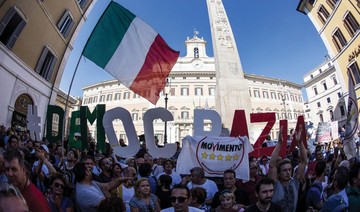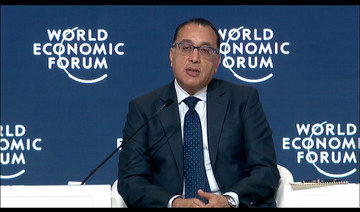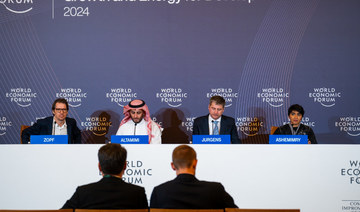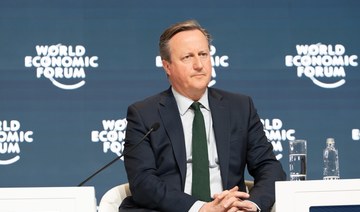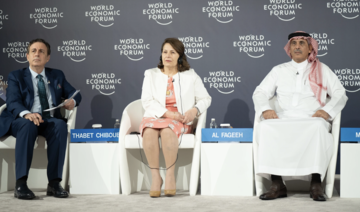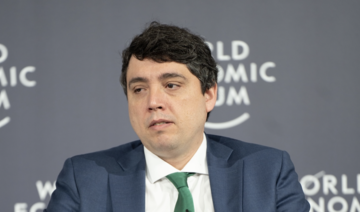LONDON: Italy’s luxury carmaker Ferrari and Exor, the owners of Juventus football club, are among a host of companies that can now borrow money more cheaply than the country’s crisis-hit government.
Italian sovereign bond yields rose this week to some of their highest levels in years on fears that the country’s euroskeptic politicians could win a stronger hand in potential elections, reviving the possibility of a eurozone break-up — or at least a repeat of the European Union’s 2011-2012 crisis.
Even though Italy’s government bonds recovered some of their losses on Thursday, the bonds of nearly two-thirds of non-financial companies in Italy’s FTSE MIB equity index have lower yields than that of the sovereign, suggesting that investors find them more creditworthy than the government.
Italian corporate bond yields have also risen over the past week but not as dramatically as the government or sovereign bonds.
The yield on a bond maturing in May 2024 from utility Enel , rose 18 basis points on Tuesday to 1.21 percent but the equivalent Italian six-year benchmark bond saw yields rise 91 bps to 2.91 percent.
Sovereign bonds are usually considered safer than bonds issued by companies, given the latter have a higher chance of defaulting on creditors or going bankrupt. But a select group of powerful global multinationals carry higher credit ratings than the country where they are based.
In Italy, Enel as well as energy giant ENI boast credit ratings above Italy’s BBB/Baa2.
“The list of Italian firms includes a large number of global companies, many of them are global corporates with an Italian heritage,” said Andrew Jackson, head of fixed income at Hermes, an investor with £33.6 billion of assets under management.
“Of course they will be faced with major challenges if there is the worst-case scenario of redenomination, but perhaps not as much as the more Italy-focused borrowers,” he said, referring to the risk of euro break-up.
Hermes did not hold any Italian government bonds and maintained its Italian corporate bond holdings through this latest political crisis, Jackson added.
Shares in such companies have also generally outperformed the rest of the Italian stock market — while the Milan index has fallen 2.7 percent so far this week, Ferrari for instance is down 0.7 percent and ENEL has slipped 0.9 percent.
Ferrari’s 2023 bond, not currently rated by any of the major ratings agencies, carries a yield of 1.29 percent, lower than the 1.98 percent yield paid by an Italian sovereign bond that matures two weeks earlier.
Meanwhile, Exor’s 2022 bond yield, rated BBB+ by S&P, is currently around 0.9 percent lower than its sovereign equivalent while the yield on bonds from ENI and ENEL is even lower.
Italy is ranked BBB by Standard &Poor’s, two notches above junk. Moody’s has warned of a possible downgrade to Italy’s rating if the fiscal policies of the next government did not put the country’s public debt ratio on a sustainable downward trend.
A 2024 bond from Luxottica, the maker of Ray-Ban sunglasses , currently yields 0.71 percent, less than a third of Italy’s six-year borrowing cost of 2.26 percent.
Many of these companies benefit from their low exposure to the domestic market.
Ferrari, for instance, makes just 17 percent of its sales in Italy, Reuters data shows, while for ENEL and ENI the figure is around a third. Just over a fifth of Luxottica’s sales are in Europe, with the majority in the United States.
But a banker who manages debt sales for large European companies said that while domestic political issues may not hugely impact on Italy-based firms with global sales, investors would not necessarily rush to lend to them should they attempt to sell bonds in the near term.
Italian government bond markets have recovered from the selloff on hopes that new elections can be avoided, plus polls showing most Italians still support the euro. A thumbs-up from a large Japanese investor has also helped. But questions remain over Italy’s future within the European Union and even the eurozone.
That is keeping a significant risk premium in Italian sovereign bond prices, with 10-year yields still more than 200 bps above Germany’s. That will make investors wary of any new Italian exposure.
“Confidence has been shaken and I can’t see any Italian corporates getting transactions done at a reasonable price for a while yet,” the banker said.
Ferrari and Ray-Ban deemed a safer bet than Italian government bonds
Ferrari and Ray-Ban deemed a safer bet than Italian government bonds
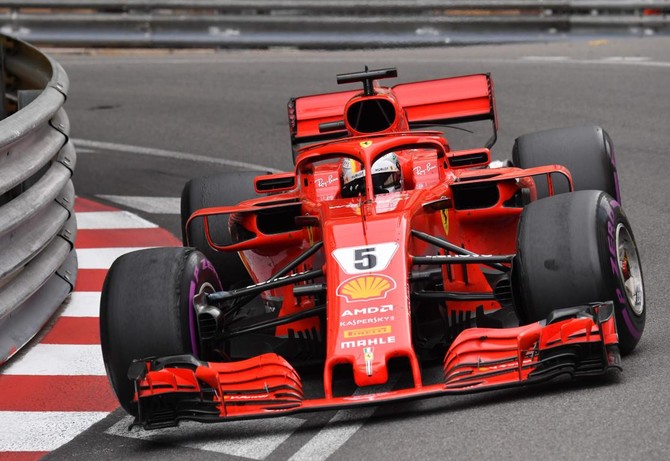
- Italian sovereign bond yields rose this week to some of their highest levels in years on fears that the country’s euroskeptic politicians could win a stronger hand in potential elections.
- Many companies benefit from their low exposure to the domestic market such as Ferrari, which makes just 17 percent of its sales in Italy.
Oil Updates – prices slip as investors eye Israel-Gaza truce talks, US Fed policy review

SINGAPORE: Oil edged down on Tuesday after Israel-Hamas ceasefire talks in Cairo helped quell market fears of an expanding conflict in the Middle East, while worries about the outlook for US interest rates dragged on the market, according to Reuters.
Brent crude futures dipped 19 cents, or 0.21 percent, to $88.21 a barrel at 9:30 a.m. Saudi time, while US West Texas Intermediate crude futures slipped 20 cents, or 0.24 percent, to $82.43 a barrel.
The front-month contract of both benchmarks lost more than 1 percent on Monday.
“The ongoing negotiation for a potential ceasefire between Israel and Hamas has led market participants to further unwind the geopolitical risk premium in oil prices, while the upcoming Fed meeting also drives some near-term reservations,” said Yeap Jun Rong, market strategist at IG.
“Rates being kept at elevated levels for longer could trigger a further rise in the US dollar, while also putting some risks to oil demand outlook.”
Hamas negotiators left Cairo late on Monday to consult with the group’s leadership after talks with Qatari and Egyptian mediators on a response to a phased truce proposal that Israel presented on the weekend.
The delegation was expected to report back within two days, two Egyptian security sources said.
While Hamas leaders visited Cairo, Israeli airstrikes killed dozens of Palestinians on Monday, with more than half the dead in the southern Gaza city of Rafah, which foreign leaders have urged Israel not to invade.
Continued attacks by Yemen’s Houthis on maritime traffic south of the key Suez Canal trading route have kept a floor under oil prices and could prompt higher risk premiums if players anticipate crude supply disruptions.
Houthis targeted two US destroyers and the vessel Cyclades in the Red Sea as well as the MSC Orion in the Indian Ocean, the Iran-aligned group’s military spokesman Yahya Sarea said in a televised speech early on Tuesday.
On the economic front, investors are on watch this week for the US Federal Reserve’s May 1 policy review, with stubborn inflation pushing out market expectations for any rate cuts, which could bolster the US dollar and hamper oil demand.
Some investors are cautiously pricing a higher probability that the Fed could hike interest rates by a quarter percentage point this year and next as inflation and the labor market remain resilient.
Additionally, concerns over demand have also weighed on sentiment, ANZ analysts said in a research note, as premiums for diesel and heating oil over crude oil have fallen to their lowest level in months.
“The four-week average consumption in the US is near the average seasonal low of the past five years,” said ANZ, citing data from the Energy Information Administration.
Global collaborations crucial to address global challenges, says Saudi official
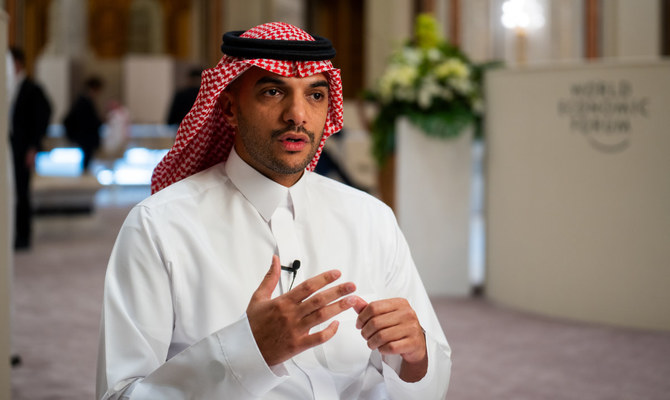
- Ammar Nagadi, vice minister of economy and planning, talks to Arab News on the sidelines of World Economic Forum Special Meeting in Riyadh
RIYADH: Global collaborations are a crucial element in efforts to tackle economic and social challenges, especially given the current state of the world, a leading Saudi official said.
In an interview with Arab News on the sidelines of the two-day World Economic Forum Special Meeting on Global Collaboration, Growth and Energy for Development, which concluded on Monday in Riyadh, the Kingdom’s vice minister of economy and planning, Ammar Nagadi, spoke about the important role such gatherings can play in advancing economic cooperation to address global challenges.
He believes the world is going through a “unique” time, with economic and social challenges worldwide and human development at a critical stage.
“Because of this, global collaboration and the world convening together becomes more and more important,” Nagadi said.
“We have seen that over the last few years Saudi Arabia is becoming a platform that brings together different people from different parts of the world to discuss challenges and to address these challenges” and the World Economic Forum special meeting is a continuation of that process, he added.
“We have more than 1,000 leaders today from different sectors (attending the meeting). We have heads of states, private sector and public sector leaders, and entrepreneurs from more than 70 countries across the globe.
“I think this diverse group, coming together to discuss and address global challenges is a unique opportunity and we are very happy to have it here in Riyadh today.”
Describing the economic landscape in the Kingdom, Nagadi said the Saudi economy is going through a very strong period of transformation that is reflected in the progress the country has made in terms of growth and diversification.
“Last year, Saudi Arabia’s non-oil activities grew by 4.4 per cent but I think the most important thing to realize is that non-oil activities, as a percentage of total gross domestic product, have reached, for the first time in history, 50 percent of the total GDP,” he added.
This represents a significant milestone that reaffirms the progress made in efforts to diversify the national economy, he added, which have created numerous benefits, including investment opportunities and improved job prospects for Saudis.
“If I take one example, you will see that unemployment last year in the last quarter has reached an all-time low of 7.7 per cent and we hope to see that momentum continuing,” Nagadi said.
He believes this momentum will also continue in terms of growth and diversification.
“We target to grow around 5 per cent for non-oil activities this year but we have seen recent forecasts by the IMF (International Monetary Fund) where they’re expecting Saudi Arabia to further grow in 2025 by around 6 per cent,” he added.
Saudi Arabia is also making progress toward achieving sustainability goals, which Nagadi said is another important topic.
“What we have today is Vision 2030, which is very ambitious, and sustainability is an integral part of that vision,” he added.
“We have economic goals, social goals, environmental goals. If I were just to take the environmental part of the sustainable development goals, you will see that Saudi has put in a lot of efforts as part of Vision 2030.”
The Saudi Green Initiative, announced in March 2021, is a great example of what the Kingdom is doing not only to drive economic growth but also protect the planet, Nagadi said.
“The aim is to achieve net-zero emissions by 2060, and the goals are to increase the renewable energy mix to 50 percent of the total energy mix and plant 10 billion trees by 2030 as well as protecting land and sea,” he said, adding that 50 million trees have already been planted.
Saudi-UK economic symphony hits high note with Vision 2030, Lord Mayor of City of London tells Arab News
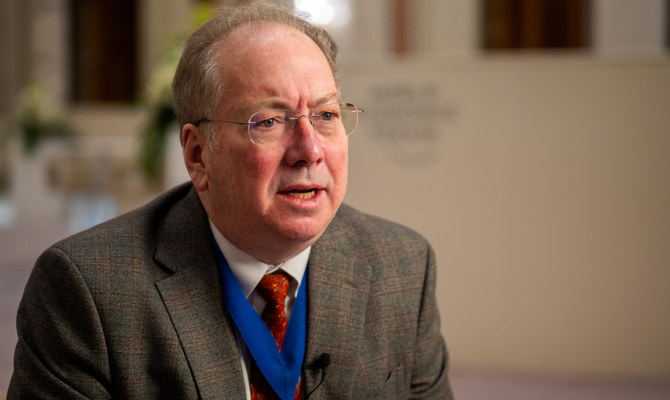
- Michael Mainelli: ‘With the amazing changes under Vision 2030, we’re anticipating yet more investment both ways’
RIYADH: Business and investment between Saudi Arabia and the UK are flourishing under the “amazing” Vision 2030 reform plan, with expectations for further collaborations on the horizon, the Lord Mayor of the City of London told Arab News in Riyadh.
Michael Mainelli said of the business and investment connections between Saudi Arabia and the City of London: “The Gulf is our fourth-largest trading partner with about £65 billion ($81.47 billion) in trade every year, and Saudi is the largest chunk of that to well over £17 billion, so trade is very good.”
Saudi investment in the City of London has always been “very, very strong, and British investment in Saudi has also been strong. I don’t think there’s anything other than growth, and with the amazing changes under Vision 2030, we’re anticipating yet more investment both ways,” he added.
“The great thing about Vision 2030 is that it’s almost like a pyramid, with the entire nation working together towards a whole series of goals.”
The UK is “the world’s premier professional financial services sector, so there will always be opportunities for us to collaborate with Saudi Arabia” in this field, Mainelli said. “I think less appreciated is our recognition of Saudi intellect.”
He said he is “trying to make connections” in Riyadh, adding that Saudi academia, science, technology and research “are growing very well.”
Mainelli outlined three main avenues of Saudi investment in the City of London: property development, operational businesses, and science and technology. He added that Saudis are also investing in areas such as media distribution and packaging.
“I’m looking forward to a tremendous amount of Saudi investment in science and technology, particularly in areas like hydrogen, where Saudi Arabia is very strong, as well as in desalination and biotech,” he said.
Emphasizing initiatives aimed at bolstering economic cooperation between Saudi Arabia and the UK, he said: “The British government is hosting a two-day conference here in Riyadh from May 14 to 15. We’re bringing over about 400 to 500 British firms to look at areas where they’re looking at technology.
“Equally, in June we have our Net Zero Delivery Summit, where Saudi Arabia will be present, and on June 24 the UK-Saudi infrastructure meeting, where we’ll discuss infrastructure projects both ways.”
Providing insight on how the UK can further strengthen economic relations with Saudi Arabia, especially after having left the EU, Mainelli said: “The Brexit vote was over eight years ago, and in the City of London we’ve grown from 525,000 workers to 615,000 workers — a net gain of 90,000.
“Also, assets under management globally have increased from just over 12 percent to about 15 percent of global assets. So the City of London has been doing very well post-Brexit.”
Mainelli highlighted the value of conferences such as the World Economic Forum in Riyadh, which he attended, as catalysts for business deals, often beginning with conversations between individuals.
“It’s great to have this event. It focuses very much on cooperation, particularly in the energy sphere, which is fundamental to economic growth,” he said.
“Britain is a petrostate in its own right, not as strong as Saudi Arabia. Both countries have to work on what’s their energy transition going to be in a net zero world.”
Besides geopolitical tensions, trade restrictions pose significant barriers to global collaboration, Mainelli said.
“These are present in both goods and services, particularly in professional services, and the way to address them … is through standards. These are ISO (International Organization for Standardization) standards, which I’m promoting for artificial intelligence and space sustainability, for example,” he added.
“These are mutual recognition standards for professionals working, so a Saudi accountant could work in Britain and vice versa, and similarly for lawyers etc.
“The third area concerns governance standards and how organizations are managed. So I believe probably the biggest thing to constantly work at is standards.”
Mainelli stressed the need to address geopolitical tensions, “but as a business community we’re not deeply involved in those negotiations, decisions or military actions, so it’s important for us to understand how we should be reacting to and how we can support peace through trade.”
Global ‘Center for Space Futures’ announced at World Economic Forum
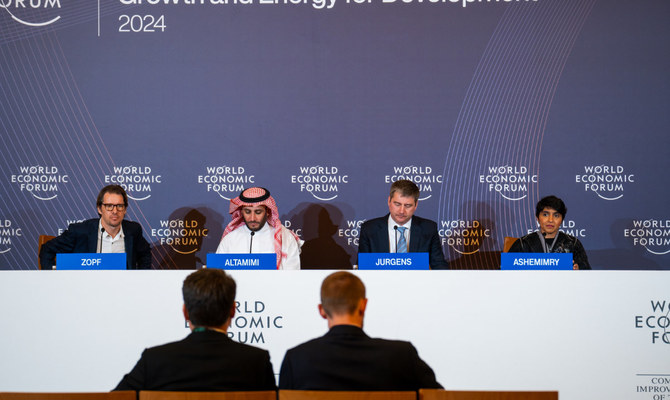
- The center aims to facilitate public-private discussions on space collaboration, incorporating best practices from the WEF and its communities into the global space sector
RIYADH: The World Economic Forum and the Saudi Space Agency signed an agreement to establish the Center for Space Futures, a Centre for the Fourth Industrial Revolution.
Hosted by the SSA, the center is expected to open later this year and will be the first in the C4IR network to focus exclusively on space. It will operate alongside the existing national center, C4IR Saudi Arabia, to advance Saudi Vision 2030.
Jeremy Jurgens, the WEF managing director, told Arab News: “Historically, many people assume that space is the exclusive domain of a few countries that have a fully integrated space technology stack. What we’ve seen over the last few years is that space is something that should be available to the whole globe.
“By launching the Center for Space Futures here in Saudi Arabia, we’re actually demonstrating that space is something for all humanity, and that we can actually unlock those benefits and use them anywhere and everywhere.”
The center aims to facilitate public-private discussions on space collaboration, incorporating best practices from the WEF and its communities into the global space sector, and generating contributions to accelerate space technologies.
Dr. Mohammed Al-Tamimi, CEO of the SSA, told Arab News: “This center is part of a global platform that will engage everyone to make sure that we’ll be activating public and private discussions, especially in this era.” As the world experiences a shift from a government-centered space sector to a private-centric sector, Al-Tamimi said that the center offers “great potential to collaborate and engage more with the private sector and government initiatives.”
The officials said they are committed to harnessing the vast opportunities of the space industry and creating a sustainable economy globally through best practices, governance, policies, innovation and valuable technologies to encourage further cross-sector engagement.
Mishaal Ashemimry, managing director of the Center for Space Futures, told Arab News: “Space generally has seen no boundaries when it comes to development, and you need the input of international countries with their expertise, their backgrounds, their achievements in space, to work together, whether it’s towards a mission or achieving governance policies … Space cannot move forward without international collaboration.”
The center will join 19 others that make up the C4IR network, a platform for multistakeholder collaboration, bringing together public and private sectors to maximize technological benefits to society while minimizing the risks.
The WEF launched the first C4IR in San Francisco in 2017, followed soon after by others in Japan and India. The network now includes the Centre for Trustworthy Technology, in Austin, the US Centre for Advanced Manufacturing, in Detroit, Germany’s Global Government Technology Centre, Norway’s HUB Ocean, and others in Rwanda, Saudi Arabia, Serbia, South Africa, India, Turkiye and the UAE.
Saudi Arabia likely to meet tourism targets ahead of 2030, says top official

RIYADH: Based on Saudi Arabia’s extraordinary achievements in the tourism sector, the Kingdom is likely to achieve its targets ahead of 2030, said a top tourism official.
During a panel at the Future Hospitality Summit held in Riyadh, Gloria Manzo, chief special adviser at the Ministry of Tourism, likened Saudi Arabia’s approach toward the development of the sector to the private sector with clear goals with key performance indicators reviewed quarterly.
She added: “We have goals, we have quarterly meetings that review our KPIs quarterly. You better be on the plan and if not, you have to explain why, so most likely it will achieve those numbers, before 2030. Absolutely!.”
Manzo noted that increasing the target indicates that Saudi Arabia is progressing faster than expected, which reflects a positive momentum in achieving tourism goals.
She said for Saudi Arabia “the sky is the limit.” The development process in the Kingdom, she added, is supported by unprecedented levels of government investment.
“What the government is doing in this country, there’s no other example in the world. I have never seen something like this in my 30 years of career,” the official said.
She also highlighted challenges facing the tourism sector such as geopolitical issues and weather-related crises, which can disrupt operations.
The official identified the development of human resources for the sector as a challenge for which the government is taking several measures.
“We wish we could do that faster. The ministry is training Saudis abroad. We announced a (training) academy. We’re partnering with universities here. That is very important, but it will be wonderful if we can train them faster. The private sector is also helping us to train these Saudis,” she said.
Manzo also expressed optimism about more Saudi women joining the tourism industry.
The official said interestingly the Saudi government “moves faster than the private sector” unlike any other country in the world where the latter tends to act quicker. She said small and medium enterprises require more support to keep pace with the ongoing development in the sector.
“I would say the SMEs need more support, and of course, we wish we can support them so that they can accelerate in this transition,” Manzo added.
“We’re working with them. We have a plan and the ecosystem is very structured,” the tourism official said.


